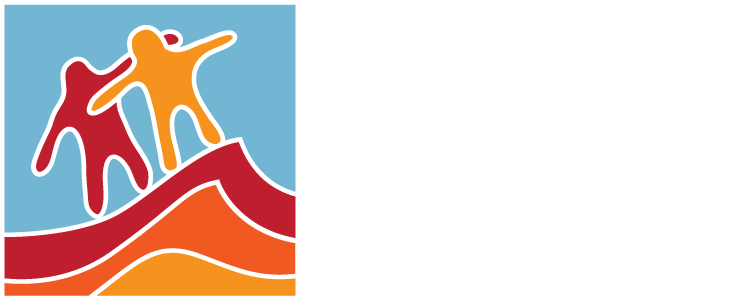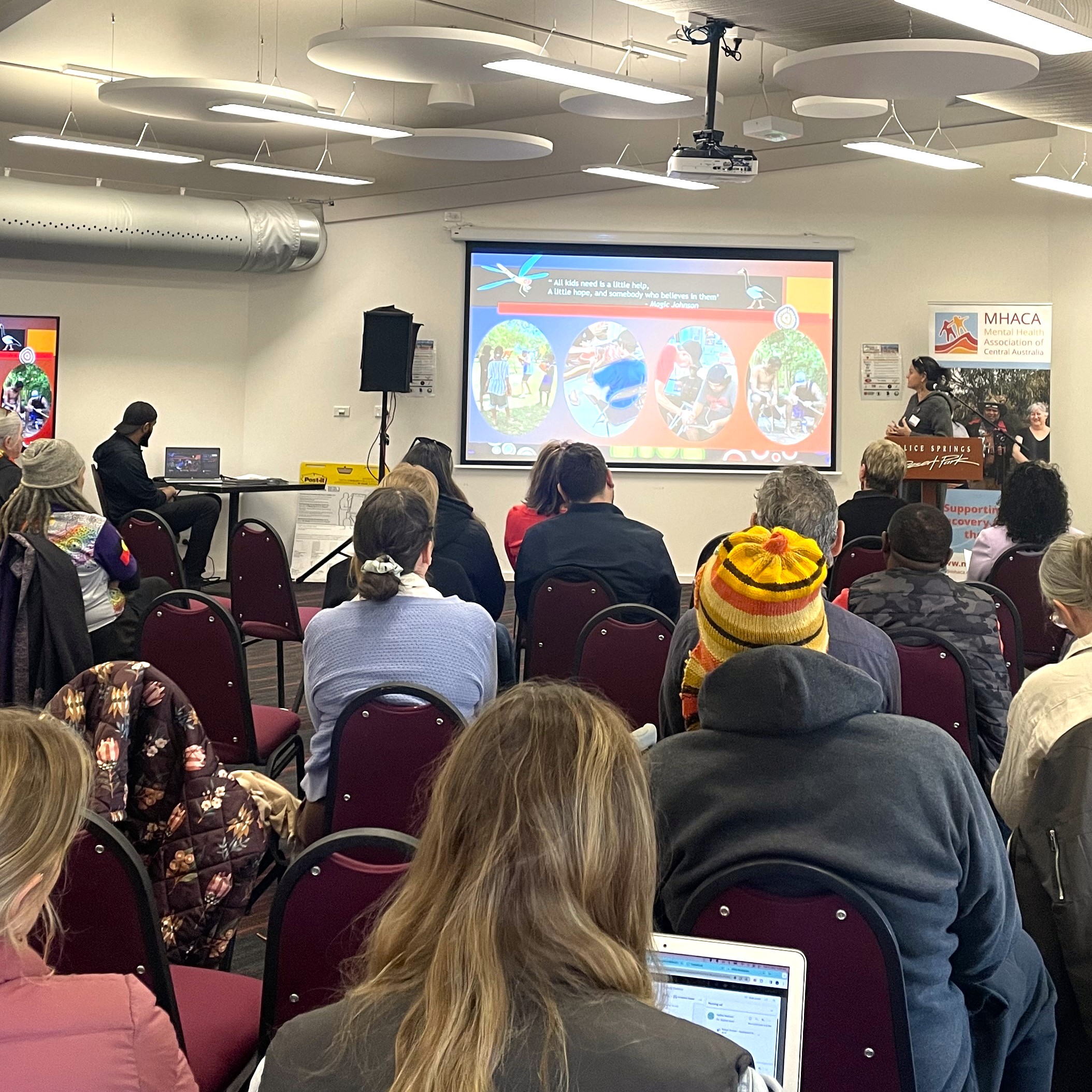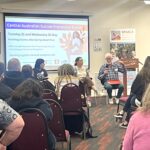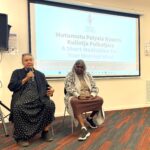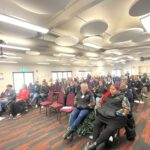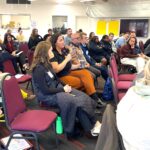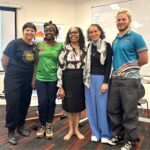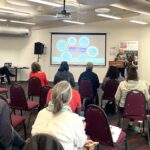“Supporting our communities” was the theme of the 2-day Central Australian Suicide Prevention Forum held at the Alice Springs Desert Park on Tuesday 21 and Wednesday 22 May.
The forum brought together a diverse group of people with an interest in suicide prevention including people working in mental health and community service provision, Aboriginal and Torres Strait Islander community members and people with a lived or living experience of suicide and mental health challenges.
The forum provided the space to share information and discuss how we can collectively work towards reducing suicide and better supporting people in crisis.
More than 70 people attended and heard from a range of speakers including:
• Pip Williams – Lived Experience Advocate and Peer Support Worker
• Aunty’s Place – Karen Moyle, Perfectly Imperfect Consulting
• Post Traumatic Growth – Lidia Di Lembo, Sabrina’s Reach For Life
• Becoming more culturally responsive and trauma informed – Rosie Schubert, Ngarla Kunoth Monks, AMSANT
• Central Australia Suicide Prevention Training Program – Lynn Moloney, Linda Carpenter, MHACA
• Suicide Prevention in the Northern Territory – Shaun Wilson, NT Health
• TRISP Initiatives – Simon Casey, NTPHN
• NT Chief Psychiatrist – David Mitchell
• Culture Care Connect – Jesyjames Carr, Reece Cossar, Central Australian Aboriginal Congress
• 13 YARN – Marjorie Anderson
• Headspace Alice Springs – Dr Sophie Hunt, Jessica McAdam
• Alison Cunynghame – Lived Experience Advocate
• Guided meditation with NPY Women’s Council
There were also two panels as part of the event: ‘Supporting First Nation’s Lived Experiences’ and ‘Supporting People and Families in Crisis’.
Panellists were asked:
• How do we collectively get better at listening and incorporating the lived experiences of First Nations people?
• What do you think are some of the biggest pressures for families when it comes to supporting a family member experiencing a mental health crisis?
• How can we better support people living with neurodiversity when they seek support?
• We work in a system that has many challenges – within these limitations what do you think are simple things that service providers can do to improve people’s experiences of seeking support?
• We know that men are a high-risk group for suicide, how can we better support men in our community?
On the second day, attendees engaged in a full-day workshop with Rosemary Wanganeen, founder of the Healing Centre for Griefology. The workshop supported service providers and attendees to have a deeper and more meaningful understanding of why many Aboriginal people can’t, don’t or wont’ assess mainstream services.
Rosemary states as part of the workshop, “I just want to leave a mainstream service with my Aboriginal identity intact.”
Attendees learnt about suppressed loss and grief as an integral factor that can lead to further life challenges, and how people can be supported to undertake a healing journey.
The event was organised by the Mental Health Association of Central Australia (MHACA) with the support of Central Australian Aboriginal Congress, Wesley Mission, and the Northern Territory Government.
If you would like to join the Central Australia Life Promotion Network, a local suicide prevention network that has been operating in Central Australia since 1999, please email healthpromotion@mhaca.org.au
Links for article
Headspace Alice Springs
https://headspace.org.au/headspace-centres/alice-springs/
Culture Care Connect – Central Australian Aboriginal Congress
https://www.caac.org.au/service/social-and-cultural-support/
Lidia Di Lembo – Sabrina’s Reach for Life
https://sabrinasreach4life.com.au/
NPY Women’s Council Meditations
https://www.youtube.com/channel/UC4xLMeYElEwUte3r2HDoHDw
The Healing Centre for Griefology – Rosemary Wanganeen
https://lossandgrief.com.au/
AMSANT
https://www.amsant.org.au/damulgurra/
CASPT – MHACA
https://www.mhaca.org.au/suicidepreventiontraining/
NTG Suicide Prevention
https://health.nt.gov.au/governance-strategies-committees/nt-health-strategies/suicide-prevention-strategy-review
NTPHN
https://ntphn.org.au/programs/suicide-prevention/
13 YARN
https://www.13yarn.org.au/
Perfectly Imperfect Consulting
https://www.perfectlyimperfect.consulting/
